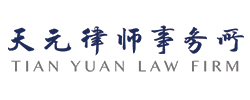To properly navigate this sensitive issue takes more than a tough conversation
For employers, lawful unilateral post transfers can be divided into two categories: those pursuant to laws and regulations, and those based on business needs.
Typical scenarios of the former include the statutory duty of an employer to transfer an employee to another position when no longer suitable for the original post (after expiry of a medical period, as prescribed in article 40 of the Employment Contract Law), as well as a transfer when the employee is not competent for the job.
The latter is a rule of thumb that has been affirmed by court opinions in Beijing and other regions, and widely applied in judicial practice.
Applicable scenarios

Partner
Tian Yuan Law Firm
Tel: +86 139 1189 0649
E-mail: guowei@tylaw.com.cn
Based on case studies, “business needs” should be construed as job transfer needs arising from new circumstances affecting the employer’s business developments.
Such new circumstances include both external factors – such as changing market environment – and internal ones, such as the employer’s business decisions, as well as hiring needs (subjective factor) and employee performance (objective factor).
The following scenarios are perhaps the most prominent in judicial practice:
Business changes driven by internal or external factors. The employer should provide evidence on actual changes in operating conditions to substantiate necessity to transfer the employee to another position. Note “actual” changes, instead of citing general terms such as changing market conditions, pandemic impact, business remodelling, business restructuring, the set-up of new departments, relocation of work, or the cancellation of an existing position.
Policy-triggered business changes. The employer should provide evidence of an immediate policy impact on the employee. Generally, the policy should describe its employee impact in detail, so that any post transfer is not excessive, inappropriate or unnecessary.
Necessary post transfer based on employee performance. The employer should provide evidence of the employee’s performance, the basis for a transfer and, where applicable, any losses resulting from the employee’s fault. If such a fault can be successfully substantiated, the court is more likely to consider the transfer as lawful.
Project-related job transfer. The nature of certain businesses and professions may require the employee’s duties and location to change along with the project. In such circumstances, the employment contract generally includes clauses regarding any project-related job transfer. Such unilateral adjustments are supported in most relevant cases.
Legality considerations

Associate
Tian Yuan Law Firm
Tel: +86 186 4262 8531
E-mail: wuhantong@tylaw.com.cn
Case studies show that other than necessity, the following factors are also considered in determining the legality of a job transfer:
- Contractual clause or regulatory basis. Although a contractual clause or regulatory basis are not always considered for the legality of a unilateral job transfer, an explicit agreement or provision in advance helps affirm the lawfulness, facilitating special arrangements for certain transfers.
- When a business change behind the transfer affects more than one person, work adjustments are made to all employees involved.
- The employer explicitly states reasons for the transfer and the duties, remuneration and benefits that come with the new post.
- The employer makes necessary communication with the employee before and during the transfer, especially if the employee raises an objection.
- Changes in duty and rank after transfer. The court generally bases its judgment on whether the new duty goes beyond the employment contract; is relevant to the original post and within the competency of the employee; or is insulting in nature. With regard to rank adjustment, the court generally prefers a not-too-wide gap.
- There is no material or substantial adverse change in remuneration level after the transfer.
- Changes in post location and living standard, and whether appropriate remedies are provided. The court generally examines the distance between the original and new places of work; changes in distance from the employee’s residence and commuting time; and whether remedies suffice to offset the adverse effects of a transfer on the employee.
Overall, the above-mentioned factors are considered by courts dynamically and on a case-by-case basis.
Not all boxes must be ticked for a job transfer to be deemed lawful. However, there is no guarantee as to which factors the court will lean towards in a given case.
Outlook
On 12 December 2023, the Supreme People’s Court issued the Interpretation (II) on the Application of Law in the Trial of Labour Dispute Cases (Draft for Comment). The circumstances of an illegal unilateral adjustment of position and location by employers are set out under article 20.
It is worth noting that this article regards relevant employment contract clauses or regulatory provisions as necessary for the legality of a unilateral post transfer.
Although this rule has not formally come into effect and remains subject to changes, it still warrants the attention of employers due to uncertainty in current judicial practices.
Relevant clauses should be added to the contract or policy to set the stage for lawful post transfer where possible.
In addition, article 20 introduces a higher requirement that necessary assistance or compensation should be provided if there is any adverse change in remuneration and other working conditions triggered by the transfer. The employer should prudently adjust the remuneration and other working conditions, and provide assistance and compensation where possible.
Before the official interpretation launches, current judicial practice standards should still serve as a baseline for employers regarding unilateral post transfers triggered by business changes.
Employers should strive to satisfy as many legal considerations as possible, while keeping a keen eye on any possible impact of the draft interpretation.
Guo Wei is a partner at Tian Yuan Law Firm. He can be contacted by phone at +86 139 1189 0649 and by email at guowei@tylaw.com.cn
Wu Hantong is an associate at Tian Yuan Law Firm. He can be contacted by phone at +86 186 4262 8531 and by email at wuhantong@tylaw.com.cn

10/F, Tower B
China Pacific Insurance Plaza
28 Fengsheng Hutong
Beijing 100032, China
Tel: +86 10 5776 3888
Fax: +86 10 5776 3777
www.tylaw.com.cn





















